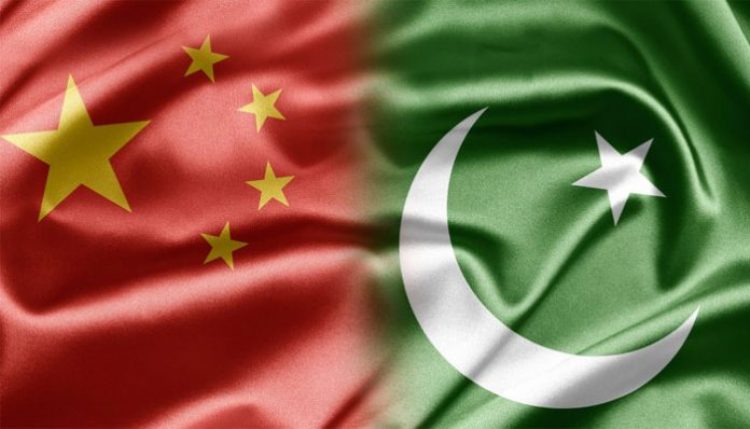China, Pakistan targeted on persecution of religious minorities at UNSC meet

- Country:
- United States
China and Pakistan were targeted for their persecution of religious minorities, with western powers such the US and UK calling out both nations at a UN Security Council meeting on Thursday for the oppression faced by Christians, Ahmadis, Uighurs and other ethnic minorities. The Arria-Formula Meeting of the Security Council on 'Advancing the Safety and Security of Persons Belonging to Religious Minorities in Armed Conflict' was organized by Poland, the Council President for August, to mark the first International Day Commemorating the Victims of Acts of Violence Based on Religion or Belief.
Addressing the meeting, US Ambassador at Large for International Religious Freedom Samuel Brownback said religious freedom is essential for achieving peace and stability within nations and among nations. He then called out Pakistan for the persecution of religious minorities in the country. "In Pakistan, religious minorities continue to suffer from persecution, either at the hands of non-state actors or through discriminatory laws and practices,” Brownback said.
Brownback voiced appreciation for Poland for inviting President of Human Rights Focus Pakistan, Naveed Walter who spoke about the challenges to religious freedom in Pakistan. Brownback described Walter as a “courageous advocate for the persecuted, whether Christian, Ahmadi, Hindu, or others.” In his remarks, Walter said "large groups of people are marginalized in their own societies” and the biased behavior develops in other areas also "like the minorities on basis of religious affiliation as like in Pakistan, the Ahmadiyyas having the situation.”
Like China, “a growing number of countries use national security as a pretext of restricting religious expression and the role of religion in public domain," he said. Brownback also voiced concern over the “undue restrictions” on religious freedom in China, strongly calling on Beijing to end its “war on faith” and to respect religious freedom for all.
“It is important to note that the presence of conflict is not the only context for the oppression of religious minorities. We remain deeply concerned about the Chinese government's escalating, widespread and undue restrictions on religious freedom in China, and we urge the Chinese government to respect the human rights and fundamental freedoms of everyone in that nation,” Brownback said. He emphasized that many members of religious groups in China – including ethnic Uighur, Kazakhs and other Muslims, Tibetan Buddhists, Catholics, Protestants, and Falun Gong – face severe persecution and repression, and “we call on the Chinese government to end its war on faith and to respect religious freedom for all."
“I respectfully urge all countries, including those in Muslim majority countries, to join our calls for better treatment of Muslims and others in China,” he said. Significantly, in their remarks, the UK, France, and Canada also spoke out against the oppression of religious minorities in China and Pakistan. Lord Tariq Ahmad of Wimbledon, UK Prime Minister’s Special Envoy on Freedom of Religion or Belief, said at the meeting that the UK has spoken out for the rights of religious communities and minorities across the world, “from the Uighurs in China, Christians, and Ahmadis in Pakistan as we heard from Naveed.”
Canada’s Ambassador to the UN Marc-Andre Blanchard said: “we must unequivocally call out attacks whether directed at Christians in the Middle East and elsewhere, Christians in Pakistan, a deepening crackdown on Uighurs and members of other religious minority groups in China.” France's representative said that there are various examples from other regions of incitement and hatred and discrimination against Bahá'í, Uighurs and other minorities in Xinjiang.
Pakistan's Prime Minister Imran Khan had taken to Twitter to say that on the first International Day for Victims of Violence based on Religion or Belief, Islamabad calls “attention to the plight” of millions of Kashmiris who have been “deprived of all fundamental rights & freedoms.” In a thinly veiled reference to Khan’s tweet, India’s Permanent Representative to the UN Ambassador Syed Akbaruddin tweeted, “Fulminations Vs Facts. Fulmination on social media by an important personality urging that the First International Day for Victims of Violence based on Religion today highlight an issue of his choice didn't match what was repeatedly said @UN. C for yourself.”
Along with his message, Akbaruddin posted a video that contained snippets from the Arria-Formula Meeting and showed Walter and other UN members voicing concern over the persecution of religious and ethnic minorities in Pakistan and China. Nobody at the UN meeting made reference to any Indian minority group. Addressing the meeting, UN chief António Guterres called for an end to the persecution of religious groups. “Jews have been murdered in synagogues, their gravestones defaced with swastikas; Muslims gunned down in mosques, their religious sites vandalized; Christians killed at prayer, their churches torched.”
He stressed that the world must step up to stamp out anti-Semitism, anti-Muslim hatred, the persecution of Christians and other religious groups, and all forms of racism, xenophobia, discrimination, and incitement to violence. UN human rights chief Michelle Bachelet, in a video message from Geneva, voiced alarm by the rise of xenophobia, racism, religious intolerance globally.
(This story has not been edited by Devdiscourse staff and is auto-generated from a syndicated feed.)
ALSO READ
Israel operating 'all over Middle East' against foes, defence chief says
French Foreign Minister: all our acts in Middle East are aimed at reducing tensions
MORNING BID EUROPE-Middle East tensions spook markets
ORS Initiates Strategic Partnership in the Middle East with BioCatalyst for Sustainable Solutions in Waste Management
GLOBAL MARKETS-Shares wilt as Middle East tension heats up crude oil










